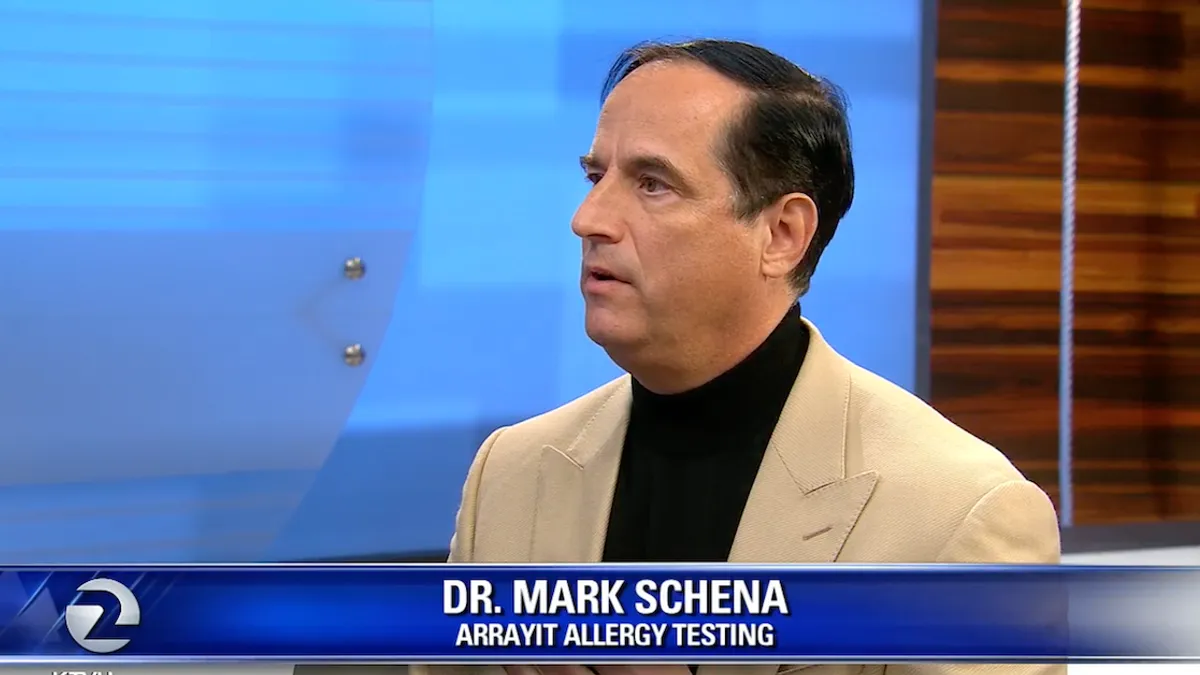Dive Brief:
- The president of medtech company Arrayit was convicted by a federal jury of participating in a scheme to mislead investors, commit fraud and pay illegal kickbacks linked to $77 million in false claims.
- Mark Schena allegedly sought to defraud Arrayit investors by claiming his technology could test for virtually any disease using only a few drops of blood, the Department of Justice said in a statement. Arrayit initially pitched the technology in allergy testing before pivoting to COVID-19 when the pandemic began.
- Schena’s conviction on nine federal charges carries a maximum sentence of more than 100 years in prison. Sentencing is scheduled for early next year.
Dive Insight:
The DOJ brought charges against Schena in 2020, accusing the executive of claiming Arrayit’s “microarray technology” enabled it to test based on a drop of blood 250,000 times smaller than the technology touted by Theranos. At that time, the DOJ linked Schena to $69 million in false claims for COVID-19 and allergy tests.
Late last week, a federal jury convicted Schena in a $77 million testing scheme. The executive allegedly paid kickbacks to marketers to obtain blood samples and “orchestrated a deceptive marketing plan that falsely claimed that the Arrayit test was highly accurate in diagnosing allergies.”
Arrayit billed Medicare more per patient for blood-based allergy testing than any other laboratory in the U.S. Bills to commercial payers went above $10,000 per test, the DOJ said.
When COVID-19 hit the U.S. in 2020, Schena allegedly claimed the Arrayit test was more accurate at diagnosing SARS-CoV-2 infections than the PCR test. When the Food and Drug Administration told Arrayit the test was too inaccurate to receive emergency use authorization, Schena allegedly concealed details of the FDA’s position from investors and patients taking the test, according to the DOJ.
The failure to disclose details of the FDA’s position to investors is part of a pattern of practice set out in the allegations against Schena. According to evidence presented at the trial, the executive “concealed that Arrayit was on the verge of bankruptcy” and issued “false press releases and tweets stating that Arrayit had entered into lucrative partnerships with companies, government agencies, and public institutions,” the DOJ said.












